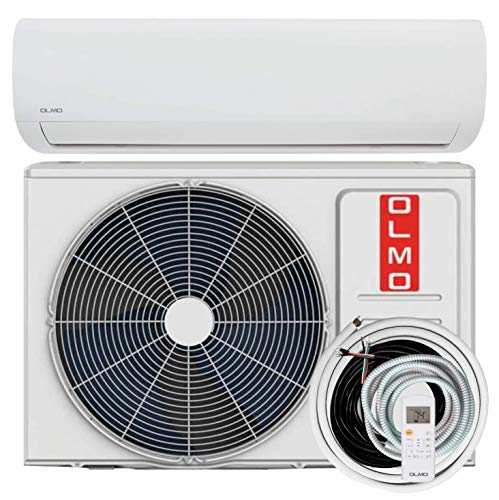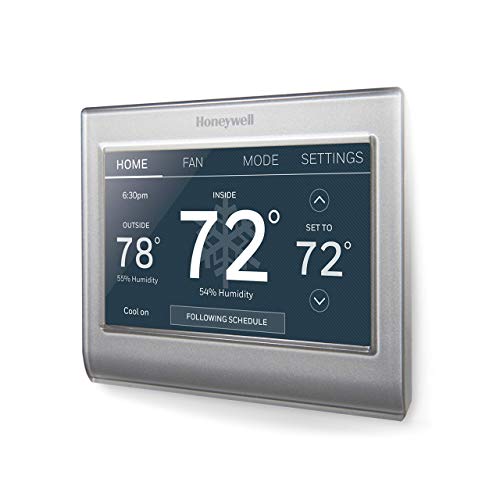The step-by-step guide “How to choose the Heating System Size?” aims to provide homeowners with a comprehensive understanding of the factors to consider when selecting the appropriate size of a central heating system.
Choosing the right heating system size for your home is a critical decision that impacts not only your comfort during the colder months but also your energy bills and the lifespan of your heating equipment. An appropriately sized heating system will ensure that your home is warm and cozy when the temperature drops, while also operating efficiently and effectively.
Selecting the correct size for a heating system involves more than just knowing the square footage of your space. Factors such as the climate you live in, the height of your ceilings, the number of windows, the quality of insulation, and even the orientation of your home all play a part in determining the ideal system capacity, which is typically measured in British Thermal Units (BTUs) for heating systems.
With the right approach, you can determine the heating system size that will meet your home’s needs without incurring unnecessary costs or experiencing performance issues. In this guide, we’ll navigate through the process of assessing these factors, understanding the importance of accurate sizing, and making an informed decision to ensure that your home’s heating system is as effective and efficient as possible.
The guide emphasizes the importance of choosing the right size to ensure optimal performance and energy efficiency. By following the outlined steps, homeowners can make informed decisions that will meet their heating needs while avoiding unnecessary costs or inefficiencies. How to Clean a Furnace Filter.
How to Program Thermostat with Your Heater
Top-selling central heating systems
Dispel Misinformation: Accurate HVAC System Sizing and Recommended Approaches
Understanding your heating needs
Heating System Size? To evaluate your heating requirements, start by assessing the size and layout of your home. Measure the square footage of each room and consider the number of floors and overall layout. This will give you a sense of the amount of space that needs to be heated.
Next, evaluate the insulation levels in your home. Insulation plays a crucial role in retaining heat and minimizing heat loss. Check for insulation in walls, ceilings, floors, and attics. Consider the quality and thickness of the insulation material.
Additionally, take into account the number of occupants in your home. The more people living in the house, the higher the heating demand is likely to be. People generate heat through their activities and body heat, so more occupants will lead to a higher heating requirement.
By considering the size and layout of your home, insulation levels, and the number of occupants, you can accurately determine your heating needs. This evaluation will help you make informed decisions when selecting a heating system and set appropriate temperature levels to ensure comfort and energy efficiency.
Calculate the heat loss
To calculate the heat loss of your home and ensure the proper sizing of your central heating system, there are two recommended methods: using a heat loss calculator or consulting with a heating professional.
To use a heat loss calculator, you can find a variety of online tools available on websites or mobile applications. These calculators typically require you to input specific information about your home, such as the dimensions, insulation levels, windows, and other relevant factors.
Follow the prompts provided by the calculator and ensure accurate data entry. The tool will then calculate the estimated heat loss of your home based on the input variables, giving you an indication of the heating requirements.
Alternatively, consulting with a heating professional offers a more personalized approach. Contact a reputable heating contractor or engineer who can assess the unique characteristics of your home. The professional will likely perform an on-site inspection, taking into account factors such as insulation, air leakage, window efficiency, and building materials. With their expertise, they can accurately calculate the heat loss of your home and advise on the appropriate sizing of your central heating system.
Remember, both methods are aimed at ensuring the proper sizing of your central heating system, which is crucial for maintaining a comfortable and energy-efficient home. Heating System Size
Here are the details tabulated:
| Home Size | Furnace BTU | Central AC Unit Size |
|---|---|---|
| 1,200 sq. ft | 50,000 BTU | 1.5 to 2 tons |
| 1,200 to 1,500 sq. ft | 55,000 BTU | 2 tons |
| 1,500 to 1,800 sq. ft | 60,000 BTU | 2.5 tons |
| 1,800 to 2,500 sq. ft | 70,000 BTU | 2.5 to 3 tons |
| 2,500 to 3,500 sq. ft | 90,000 to 100,000 BTU | 3.5 to 4 tons |
This table outlines the recommended furnace output in BTU (British Thermal Units) and central air conditioning unit sizes in tons based on the square footage of the home.
Consider the heating system options
Research and understand the different types of central heating systems available, such as boilers, furnaces, and heat pumps, to determine which one is most suitable for your home. Start by gathering information on each type of system, including their pros and cons, energy efficiency ratings, and maintenance requirements.
Read relevant articles, manufacturer websites, and customer reviews to gain a better understanding of the performance and reliability of each system. Look for reputable sources and seek professional advice if needed.
Compare the heating capacities and fuel sources needed for different systems to ensure compatibility with your home’s size and layout. Consider factors such as the availability and cost of fuel as well.
Evaluate your budget and long-term savings potential. While some heating systems may have a higher upfront cost, they might be more energy-efficient and offer substantial savings in the long run. Take into account the payback period and any available rebates or incentives.
Once you have thoroughly researched and understood the different central heating systems, it will be easier to make an informed decision on which one is most suitable for your home. Heating System Size
Consult with a heating professional
Seek advice from a qualified heating professional to ensure the proper assessment and recommendations for your home’s central heating system. Heating System Size
- Locate a qualified heating professional: Research and find a certified heating professional with experience and expertise in assessing residential heating systems. Look for industry certifications, customer reviews, and recommendations to ensure the highest level of service.
- Arrange a consultation: Contact the heating professional and schedule a consultation to assess your home’s unique requirements. Provide information about the size, layout, and insulation of your home, along with any specific heating needs or concerns you may have. Heating System Size
- Prepare for the consultation: Prior to the consultation, gather relevant information such as utility bills, previous heating system documentation, and details about any existing issues you may be experiencing. This will help the heating professional better understand your needs during the assessment.
- Attend the consultation: Be present during the consultation to provide any necessary information and answer questions from the heating professional. This will ensure a comprehensive assessment based on accurate data. Take notes and ask for clarification as needed.
- Listen to recommendations: After assessing your home, the heating professional will provide recommendations on the right size of central heating system for your specific needs. Listen carefully to their suggestions, taking into account factors such as energy efficiency, budget, and long-term maintenance requirements. Heating System Size
Remember, consulting with a qualified heating professional is essential to ensure the optimal performance and energy efficiency of your central heating system. Their expertise will help you make informed decisions and avoid costly mistakes in the long run.
Evaluate energy efficiency
Heating System Size. Evaluate the energy efficiency ratings of various central heating systems to determine the most suitable option for your heating requirements while also promoting energy conservation and reducing utility expenses. Compare the energy efficiency ratings of different central heating systems available in the market. Examine the Annual Fuel Utilization Efficiency (AFUE) ratings, which indicate the amount of energy consumed during operation.
Look for central heating systems with higher AFUE ratings, as these indicate higher energy efficiency. Consider the Seasonal Energy Efficiency Ratio (SEER) and Heating Seasonal Performance Factor (HSPF) ratings for heat pumps. Look for systems with higher SEER and HSPF ratings, as these denote greater energy efficiency.
By evaluating the energy efficiency ratings of central heating systems, you can make an informed decision that not only meets your heating needs but also minimizes energy consumption and saves on utility costs. Heating System Size
Consider future expansion
Consider future expansion when determining the most suitable heating system for your home. By taking into account any future plans to expand your living space, you can ensure that the chosen system has the capacity to meet your heating needs in the long run.
To incorporate future expansion into your decision-making process, start by assessing the current size of your home and determining how much additional space you plan to add. Consider factors such as new bedrooms, bathrooms, or living areas that may require heating. Calculate the estimated heating load for both the current and future spaces to understand the heating capacity required.
For example, if you are planning to add two more bedrooms in the future, each requiring 2,000 BTU per hour of heating, you need to ensure the chosen heating system can handle an additional 4,000 BTU per hour.
Once you have determined the heating capacity required for your current and future spaces, review the specifications and capabilities of different heating systems. Look for systems with the flexibility to expand and accommodate increased heating needs. Heating System Size
For instance, a modular heating system allows for the addition of extra heating units in the future, ensuring scalability as your home expands. On the other hand, a fixed-capacity system may limit your options and require replacement or upgrades when you expand your home.
Considering future expansion when selecting a heating system will save you from unnecessary costs and inconvenience down the line. Ensure that the chosen system has the capability to accommodate your future heating needs, allowing for a seamless transition as you expand your home.
Get multiple quotes. Heating System Size
To obtain multiple quotes for your heating system, follow these steps:
- Research and identify reputable heating system providers in your area. Look for companies with positive customer reviews and a solid track record.
- Contact each provider either by phone or through their website. Request a quote for the specific heating system you are interested in. Provide them with all relevant details, such as the size of your space, any specific requirements, and if you need installation services.
- Ask each provider for a detailed breakdown of the quote. This should include the price of the heating system itself, any additional equipment or accessories, installation fees, and any applicable warranties or guarantees. Heating System Size
- Pay attention to the warranty offered by each provider. Ensure that it covers both the heating system itself and the installation services. A longer warranty period can indicate the confidence the provider has in their product and installation expertise.
- Compare the quotes you receive, taking into account the price, warranty, and installation services offered. Look for any discrepancies or differences in the materials, features, or scope of work provided by each provider.
- Finally, make an informed decision based on your comparison. Choose the heating system provider that offers the best value for your money, taking into consideration the price, warranty coverage, and quality of installation services.
Obtaining multiple quotes allows you to compare prices, warranties, and installation services, helping you make a well-informed decision about your heating system. It ensures that you get the best value for your money and choose a reputable provider that meets your specific needs.
Key Considerations in Conclusion
In conclusion, accurately sizing your central heating system is of utmost importance when ensuring both comfort and energy efficiency in your home. Heating System Size Throughout this guide, we have highlighted the key factors to consider when selecting the right size, such as the square footage of your property, insulation levels, climate conditions, and individual heating needs. By taking these factors into account and seeking professional advice if needed, you can avoid the potential pitfalls of an undersized or oversized system. Remember, investing time and effort into properly sizing your central heating system will result in optimal heating performance, reduced energy consumption, and long-term cost savings.
Sizing Recommendations
Places to purchase Central Heating Systems
Heating System Size

















